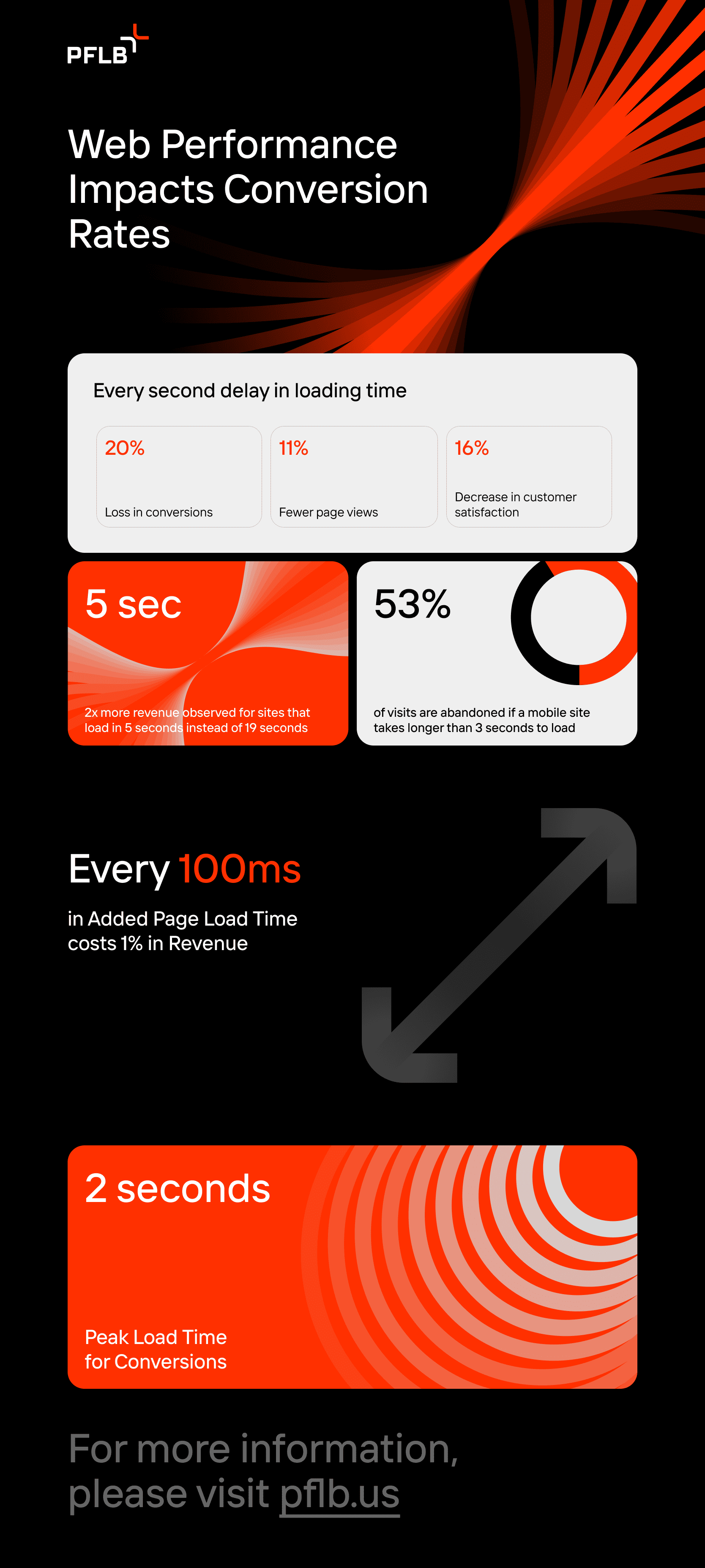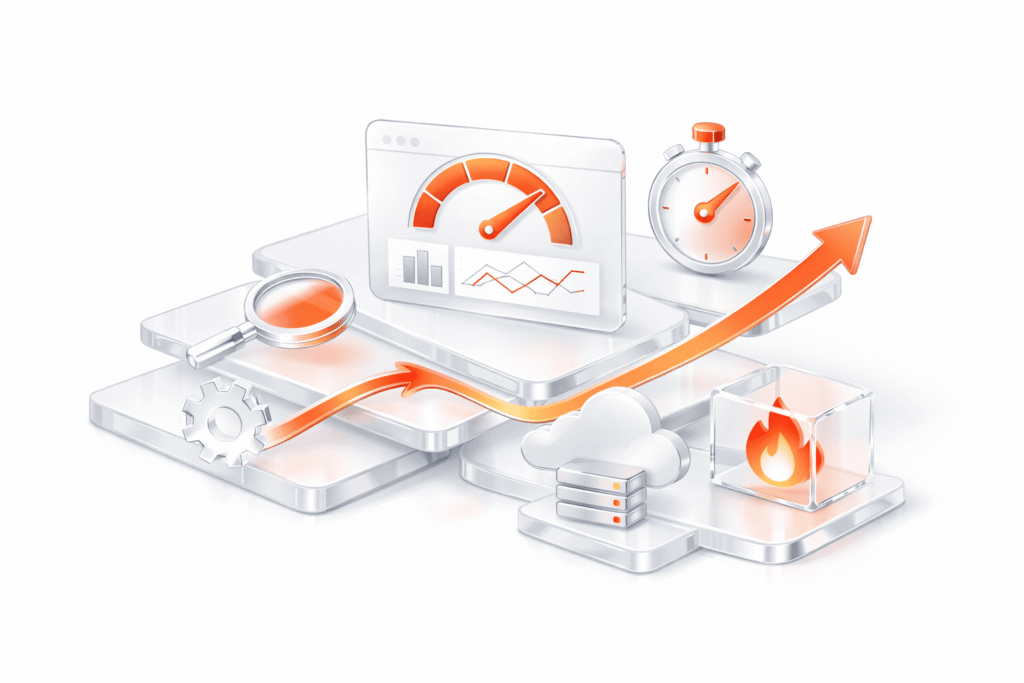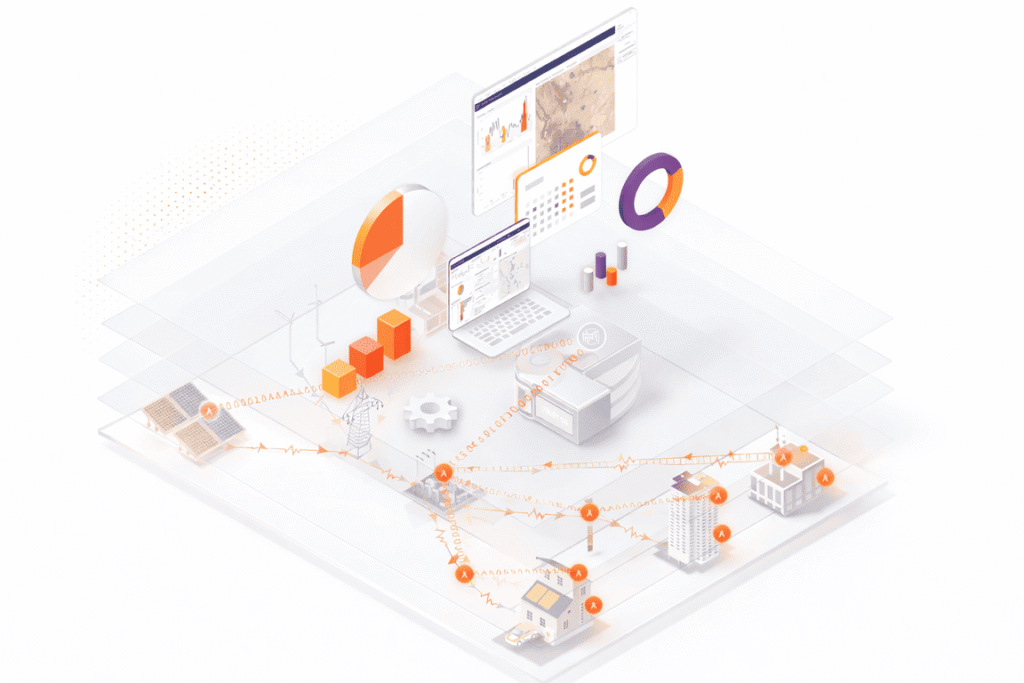To emphasize the significance of website speed on conversion rates, let’s explore some eye-opening statistical data:
A staggering 53% of visitors will abandon a website if it takes longer than 3 seconds to load. This statistic, sourced from Google, highlights the impatience of modern internet users.
The financial impact of slow-loading websites is evident in the retail industry, where businesses suffer a loss of $2.6 billion in sales annually due to subpar website performance. This finding, provided by Sweor, underlines the direct link between website speed and revenue generation.
Delving further into the financial aspect, every 100ms in added page load time results in a 1% reduction in revenue. This data from Conductor reinforces the notion that even tiny improvements in website speed can have significant financial implications for businesses.
Statistical Data: Speed as a Conversion Driver
Real-world examples substantiate the impact of website speed on business success.
According to Google, a 3.8-second website speed improvement can increase conversion rates by up to 2 times. This finding further solidifies the role of website speed in conversions generation.
Other factors affecting conversion rate?
While website speed plays a central role in influencing conversion rates, other factors can also impact a visitor’s decision-making process.
Browser Performance: Comparative performance data reveals that Google Chrome’s Speedometer 2.0 test score is 18.8% higher than Microsoft Edge’s. This data, sourced from a video by Chris Titus Tech, indicates that the choice of browser can influence the user experience and, consequently, conversion rates.
Measuring Website Speed and Conversion Rates
Before implementing strategies to optimize website speed, it is important to measure and evaluate current performance accurately. This section explores tools and techniques for monitoring website speed and conversion rates.
Website Speed Testing Tools: A range of website speed testing tools is available to measure various aspects of website performance. Commonly used tools include Google PageSpeed Insights, GTmetrix, and Pingdom.
Additionally, businesses can benefit from advanced tools like an API load testing tool, which is essential for assessing the scalability of API requests and optimizing overall website performance. For a comprehensive breakdown of the website load testing tools available this year, check out our detailed comparison, covering both open-source and commercial solutions to suit different business needs. Each tool provides valuable insights into areas that require improvement to enhance website speed.
Key Performance Indicators (KPIs): Key performance indicators are essential metrics to assess website performance and conversion rates. KPIs like bounce rate, time on page, and conversion rate are valuable in understanding user behavior and identifying opportunities for improvement.
Enhancing Website Speed for Improved Conversions
With a firm understanding of website speed’s significance and accurate measurements in hand, it’s time to explore actionable strategies for optimization.
Implementing Caching, Compression, and CDNs: Utilizing browser caching, compressing files, and employing content delivery networks (CDNs) can significantly reduce page load times. These techniques help serve cached versions of a website’s pages and assets, cutting down on server requests and enhancing user experience.
Image and Asset Optimization: Image and asset optimization involve reducing file sizes without compromising quality. Compressed images and minified CSS and JavaScript files result in faster load times and improved user engagement.
Leveraging Browser Caching and Reducing Server Response Times: Browser caching instructs a user’s browser to store static resources locally, reducing the need for repeated downloads. Reducing server response times is critical for ensuring a swift initial connection to a website.
Conclusion
The impact of website speed on conversion rates cannot be overstated. Statistical data demonstrates the direct correlation between website speed and user behavior, revenue generation, and overall business success.
By understanding and optimizing website speed using tools like our website performance testing tool, businesses can create a seamless and engaging user experience, resulting in increased conversions and sustained growth. As a blogger and copywriter, incorporating these insights into your content will not only demonstrate expertise but also provide valuable guidance to readers seeking to excel in the competitive digital landscape. Embrace the power of website speed optimization, and unlock your online potential for a successful future.




